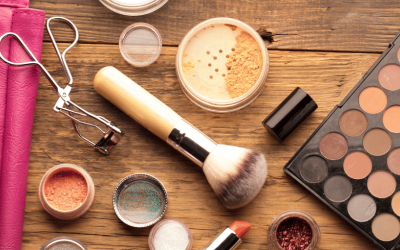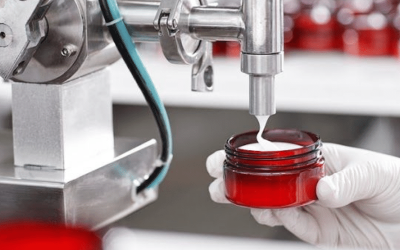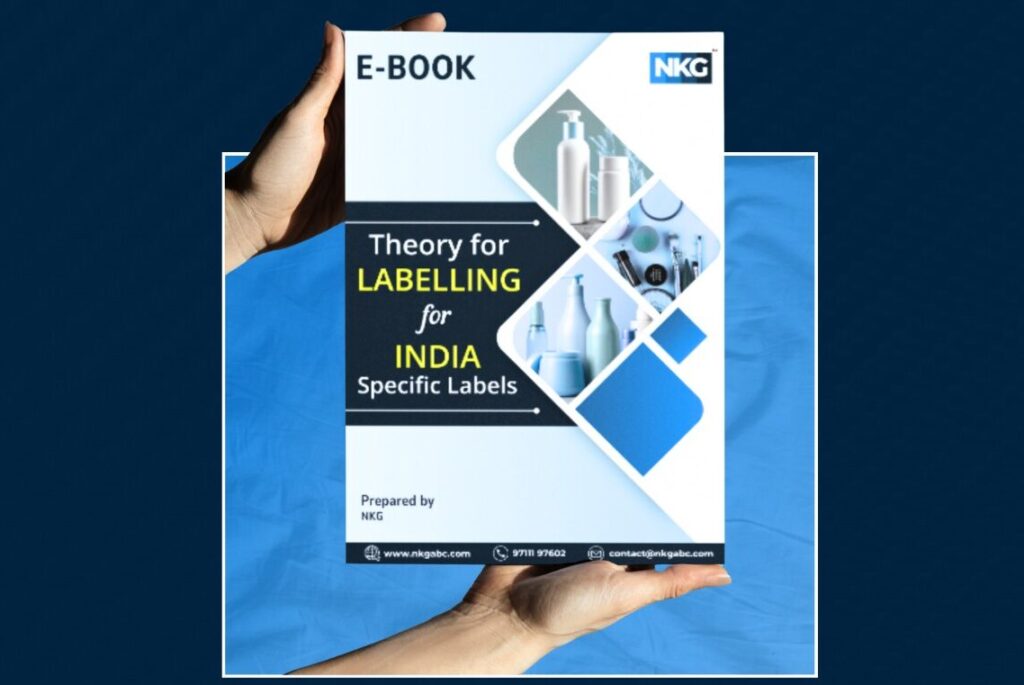1. Overview of the CDSCO
The Central Drugs Standard Control Organisation (CDSCO) is in charge of overseeing the Indian market for medical devices. It was established by the Ministry of Health and Family Welfare to regulate the production and importation of medical devices and cosmetics to protect the public. To comply with international standards, encourage transparency, and guarantee the security and efficacy of medical devices on the Indian market, CDSCO implemented the Cosmetic Drug Act and Rules 2020 specifically for cosmetics. CDSCO wants to ensure that any cosmetics sold in the Indian market are secure, efficient, and have a favorable risk-benefit ratio. The Cosmetic Drug Act and Rules 2020 instructs the manufacturer and importer on registering the medical device, getting a license, providing labeling and usage instructions, and storing and transporting the cosmetics. Thus, anyone planning to enter the cosmetic market must know these rules and acts.
2. What are cosmetics
Cosmetics are defined as “any article that can be rubbed, poured, sprinkled, sprayed, applied, or introduced to any part of the human body to increase the beauty, appearance, or attractiveness,” according to the 1940 Drugs and Cosmetics Act.
3. What is Facewash
Facewash is a skincare product designed especially for face cleaning. Typically face washes are gel-based or liquid based, which removes dirt, oil, makeup, or other impurities from the skin’s surface. The face wash is essential to daily skincare routines as it helps maintain clean and healthy skin. Face wash consists of active agents that break down the impurities and dirt from the skin. Depending on the specific formulation and targeted skincare concerns, they may include additional ingredients such as moisturizers, exfoliants, antioxidants, or acne-fighting agents. The face wash differs for different skin types, and one should choose a facewash depending on the skin type.
4. Types of Face wash
- Gel face wash – The clear, gel-like face wash is perfect for people with oily, sensitive skin that is prone to acne. Gel cleansers are intended for deep cleaning; they glide on the skin, washing away excess sebum from your pores while unclogging and nourishing each layer of your skin without being too harsh. Look for a gentle gel facial cleanser that won’t strip the skin of its natural oils and leaves it constantly feeling hydrated and fresh.
- Cream face wash – The consistency of a cream face wash is typically thicker and moisturizing ingredients like milk, or honey are often included. Cleansers like lotions or creams are designed to cleanse the skin and hydrate it thoroughly. Due to their thicker and stronger consistency, they can be used to remove makeup and are suitable for all skin types, including dehydrated, mature skin in the winter. The cream face wash is a great second-step cleanser option.
- Foam face wash– Combination skin types should choose foam cleansers because they fall in the middle of gel and cream cleansers. They could begin as a cream or gel and then explode into a rich, foamy texture. As effectively as gel facewashes, foam cleansers aid in removing excess oil from the skin. Skin will feel super-light and revitalized after the foaming particles remove dirt, grime, and impurities. However, a foam cleanser tends to strip the skin of its essential oils, so moisturize it thoroughly after using it.
5. Category of Face wash
Unlike medical devices, CDSCO does not classify cosmetics into different classes based on the risks involved. While cosmetics are categorized according to the authority’s category list based on their intended use. Below listed are the categories which CDSCO gives for Skin care products:
- Face care products other than a face mask
- Face mask
- Eye contour products
- Lip care products
- Hand care products
- Foot care products
- Body care products
- External intimate care products
- Chemical exfoliation products
- Mechanical exfoliation products
- Skin lightening products
- Other skincare products
6. Forms required
Application Form | Approval Form | Fees | Licensing authority | Validity | Penalty |
Form Cos -1: Application to import cosmetic | Form Cos- 2: Permission to import cosmetics | $1000 for each category+ $50 for each variant + $500 for each manufacturing site |
CDSCO | Five years | Three years for a person who violates section 10 A may receive a five thousand dollar fine, three years in prison, or both. |
Form Cos– 5: Application to manufacture cosmetic | Form Cos– 8: Permission to manufacture cosmetics | Rs. 10,000/- (Ten items of each category are free) | Five years | A person can receive a one-year sentence, a $1,000 fine, both, or two years in prison and a fine up to INR 2,000 in India. | |
Form Cos– 6: application for a loan license to produce cosmetics. | Form Cos– 9: Permission to manufacture cosmetics on loan. | Rs. 2500 and Rs. 1000 inspection fees for each inspection. | Five years | NA |
7. Documents for the cosmetics business
To manufacture | To import |
Form Cos –5; | List of documents required for Import registration in COS-2: |
Adhar card number with valid mobile number (mandatory) | Document required from the overseas manufacturer: Legal documents (which need to be attested): · First Schedule · Frees Sale certificate. · GMP certificate of an actual manufacturing site – Technical Documents (on manufacturer’s letterhead with a sign and stamp): · Product Specification/COA · Ingredients List · Testing Method · Heavy Metal declaration · Non-animal testing declaration |
Fees challan; Cover letter | Documents from Authorised Agent: · Cover Letter · Second Schedule
The applicant must provide the translated version if any documents are in a foreign language. |
Ownership of the cosmetics brand. |
After getting the registration certificate, · If there are any changes in labeling or composition or testing, specification, or documentation of any of the cosmetics pertaining to this Registration Certificate, etc., then it needs to be informed to CLA within 30 days of such changes. · And if there is any Change in Name or address of the Authorized Agent or Legal manufacturer without constitutional change, then it needs to be informed to CLA within 60 days of such changes. |
Documents of the firm constitution, such as the article of association | An affidavit shall be present if there is no provision for a manufacturing license for cosmetics in a country. |
Declaration of partners and the list with the names of Directors, Partners, and Trustees with their complete addresses | For those cosmetics products imported for R & D purpose registration certificate is not required. |
Power of Attorney on behalf of the company to authorized agents to submit applications | Fresh/ New registration cases: · Any change in the constitution of a Licensee. · In case of acquisition or merger of the company with any other company. · Change in share capital or Board of Directors. · Proprietorship to a partnership, including Limited Liability Partnership or vice versa. · Conversion from a private to a public company or from a public to a private company |
Approved layout plan for manufacturing site with the section-wise layout of the site and machines. | No fresh/new registration cases: · Testing Method change. · Composition change · Updates in packs and labels · Minor manufacturing changes not affecting the final product. · Change in Name or address of Authorized agent or Legal manufacturer without constitutional change.
v A fresh registration certificate has been taken from the CLA within 180 days of such change. |
Possession of documents such as ownership. Registry, lease, rent papers. |
|
Master file of the site. |
|
List of the plant according to a section of machinery and safety equipment |
|
Technical staff’s full particulars. |
|
Declaration of manufacturing analytical chemist |
|
List of cosmetic products with their composition formula and manner of labelling. |
|
Manufacturing process details, flow chart of the process. |
|
Details of the water system with water testing report. |
|
Registration from the district industries centre. |
|
Permission from state pollution control for manufacturing site |
|
NOC from the fire safety office |
|
Approval from the government for testing. |
|
8. Steps to register cosmetics in India
Step 1 : Determine if the products fall under cosmetic category from the list available in Drug and Cosmetic Act 1940 and Rules 1945
Step 2 : Fill the application based on the role – manufacturer or importer.
Step 3 : Submit the documents based on the role -manufacturer or importer.
Step 4 : Licensing authority will scrutinize the documents.
Step 5 : Licensing authority satisfied with the documents.
Step 6 : Grant of permission for manufacturing or import based on the application submitted.
Step 7 : Market the cosmetic product in India.
Conclusion : During the forecast period of 2023–2028, the face wash market is anticipated to expand at a CAGR of roughly 8%. The global personal care market is being driven by its expansion. With increased demand, new players are coming into the market to curb the demand. With an increased young population, people are no longer bound by gender to take care of their skin. As a result, the Indian government is working with CDSCO to regulate the cosmetic market to prevent consumers from buying into false advertising and give them a wide range of options. New producers and importers must research the market dynamics, adhere to the rules for product registration, and enter the market.
Simplified CDSCO Licensing: Your Step-by-Step Guide - Download Now
Download our simplified step-by-step guide to understand the CDSCO licensing process. Streamline your licensing journey and ensure compliance with ease.






